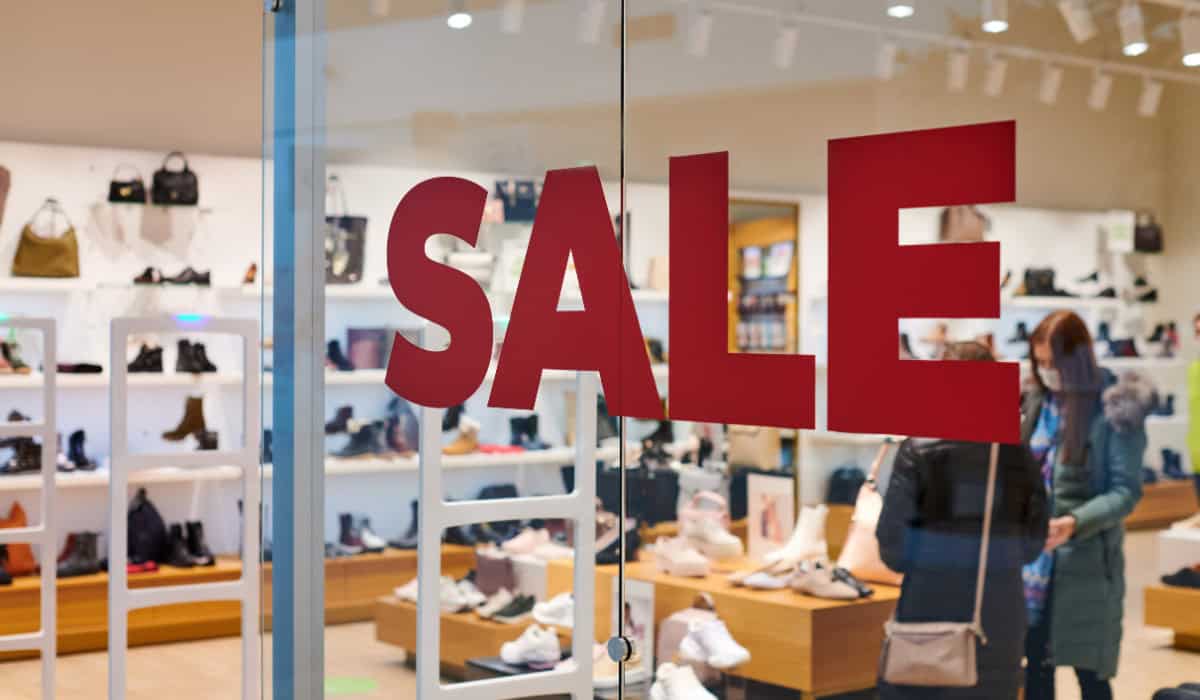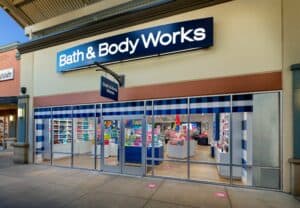
©TRAVELARIUM via Canva.com
December 12, 2024
Are Pre-Tariff Sales Promotions Fair Game?
Several smaller retailers are running promotions urging consumers to buy now before President-elect Donald Trump’s proposed tariffs arrive to jack up prices.
Among those running sales around the threat of tariffs:
- J&J Sports Service, a maker of custom fishing rods in Maryland, implored customers to “buy now” in a Facebook post, noting that the coming tariffs are “not a joke.” The post elaborated, “Our rods are built here but the supplies come from other places Japan in general. We will hold the line as long as we can. But we can say for certain this may be the last ‘sale’ you may see.”
- Finally Home Furnishings, an online furniture seller, wrote on Facebook, “Pre-Tariff Sale! This is not a drill. The very same items you are seeing now will be double the price once the tariffs kick in. This is not speculation. We went through this 4 years ago.”
- Tarptent, a tent seller based in Nevada City, California, stated in a Facebook post, “Prices may never be this good again. Our November/Black Friday sale ends tomorrow. Normally we would say these are the best prices you are likely to see until this time next year, but with high tariffs on the horizon our prices may not go this low for a lot longer.” Tarptent added that with the majority of tents made overseas and all woven fabrics and most hardware components procured overseas, tariffs “will cause our costs to go up and our prices will have to follow.”
- Jolie Skin Co., a maker of water-purification showerheads, urged customers in an email to “lock in our current prices” while warning tariffs could raise prices on its signature showerhead to $205 from $165. Jolie Skin wrote, “We’re hopeful that these new tariffs do not get added as we as American consumers would see increased prices from everything made outside the U.S., which is almost everything.”
The Wall Street Journal also said that some TikTok influencers “are feeding into the tariff frenzy, urging people to buy their favorite products in bulk now. Others on the platform are doling out tips on how long everyday items such as makeup, shampoos and food can be stored, helping users strategize their stockpiling plans.”
On the campaign trail, Trump pledged a tariff of 60% to 100% on goods imported from China and a 10% to 20% tariff on goods from all other countries on the belief that tariffs on foreign goods will help benefit U.S. manufacturing and create jobs.
Since election day, he has vowed to deploy tariffs on imports from Mexico, Canada, and China to clamp down on the flow of drugs and illegal migrants coming into the U.S., as well as tariffs on the BRICS group — comprising nine emerging market countries including Brazil, Russia, India, and China — to protect the U.S. dollar.
It is unclear what tariffs will be levied and how much they will affect prices.
Larger chains and brands haven’t yet incorporated tariff warnings into their marketing messages, although Walmart, Lowe’s, Best Buy, Columbia Sportswear, and Stanley Black & Decker have all indicated they’ll likely raise prices should tariffs arrive.
A survey of 2,000 American residents from CreditCards.com taken in late November found 34% of respondents stating they were stockpiling daily necessities like toilet paper and nonperishable food out of fear that Trump’s tariff pledges will lead to higher prices.
Discussion Questions
Is urging consumers to buy ahead of potential tariffs a reasonable marketing tactic or more of an exploitive and shady one?
Should larger chains be employing pre-tariff sales messaging?
Poll
BrainTrust
Mohamed Amer, PhD
CEO & Strategic Board Advisor, Strategy Doctor
Gene Detroyer
Professor, International Business, Guizhou University of Finance & Economics and University of Sanya, China.
Shep Hyken
Chief Amazement Officer, Shepard Presentations, LLC
Recent Discussions








No one knows exactly what will happen with tariffs as of yet. While President Trump has dangled the prospect of them, he is likely using them as a negotiating tactic and there is no guarantee he will follow through on all of his threats. However, if tariffs do get applied at the rates that have been discussed, there will be an impact on the cost of products. It’s fair for retailers to warn about that. Quite how much it impacts sales remains to be seen. I think some people may bring forward things like purchases of appliances, but I don’t see many stockpiling (despite what the survey says, there is little in actual sales data to indicate this) or purchasing things they wouldn’t have bought in the new year.
Sure,some of Trump’s bluster is simple bloviating, but I’d recommend that tequila fans purchase now, not later.
Retail Boards of Directors are discussing these issues right now, both to address messaging, and to make alternate plans.
I don’t love giving his bluster any air space at all. Plus, I don’t think those tariffs will last long, or there will be so many exceptions that the only retailers hurt will be small ones (which is a big deal, I guess). FWIW, those same large retailers sat in board rooms and decided that the best way to solve merchandise theft was to lock everything up where customers can’t get at it, so I wouldn’t say they are always the most rational or non-reactionary. Retail is a stunningly emotional industry.
There’s really no way to get into this further without getting involved in a political discussion and debate over whether the globalist donors can control the president’s worst impulses or not.
Isn’t advertising in general supposed to be persuasive? If these campaigns succeed in ginning up sales why wouldn’t chains employ them?
As to whether they end up being accurate or not, that is another story for another post. I mean the man is not even in office yet and we are advertising the end of cheap stuff from China. And don’t forget to get your house completely detailed before all of the housekeepers get deported! Or renovate you kitchen while there are still people in the country who know how to use a hammer!
There’s nothing unethical about this. Full stop. That’s not to say I’d recommend it, or – more precisely – that I’d make it the entire focus of my marketing effort(s).
Absolutely nothing unethical. This reflects a classic component of marketing – creating a sense of urgency. I do find it interesting that the retailers cited in the article are smaller / regional in nature. National, or global, retailers have wisely stayed out of the political messaging until the exact extend of tariffs are known.
Pre-tariff sales promotions are fair game in a private economy, though they are likely to be mistakes, or at least they might be overreactions, without a thorough understanding of how and to what extent tariffs will be implemented.
While I do not have inside information, and I have not had lunch with President Trump at Mar A Lago, I did read and re-read “Art of the Deal,” and I think tariffs will materialize to a much lesser extent than most think. My guess is that the majority of it will be aimed at China, but not the whole world.
Tariffs are the latest buzzword from the boardroom to the shop floor. Whether they are purely a negotiating tactic or carry weight, no one knows with any certainty. Given this situation, it is surprising that we’re not inundated with pre-tariff sales promotions, especially on large ticket items. These promotions cleverly play on both fear and greed: fear of future consumer price hikes on imported products (certain if tariffs are applied) and greed of getting a great deal now.
Retail boards are exploring scenario-based options regarding current sourcing (renegotiating prices), alternative geographies, and onshoring. In addition to higher COGS and pricing at the shelf, supply chain agility and flexibility are bubbling up to the top of the issues list for 2025 and beyond.
While this should not be the lead, the reality is one of buy now or pay more later. We just don’t know how much more and if tariffs are more negotiating tactics than real, retailers will be depressing sales down the road.
Retailers and marketers have used looming threats of economic changes (tariffs, tax increases, inflation, etc.) to drive current sales for a long time. You may consider the preemptive messaging about tariffs to be exploitative, but isn’t that the purpose of promotional advertising anyway?
Non-consumer companies are making a big bet with forward buying because almost 70% of all intermediate components and capital goods are imported. Why shouldn’t the consumer have the same chance?
The tariffs will probably happen, but we don’t know exactly what they will be yet. If there are tariffs, the costs will be passed on to the consumer—at least some, if not all. That will result in higher prices. A sale prior to the official announcement will play on consumers’ fears. However, waiting until we know what tariffs will be imposed may be a more legitimate reason for a sale.
Pre-tariff sales promotions are neither good nor bad, just an opportunity to get consumers to spend now, playing on the predictions that everything will be more expensive if tariffs are implemented vs just being used as a negotiation tactic.